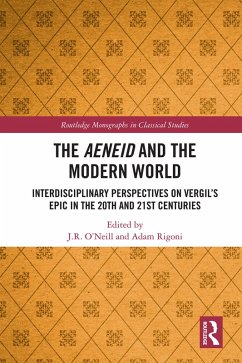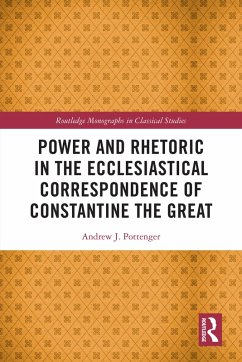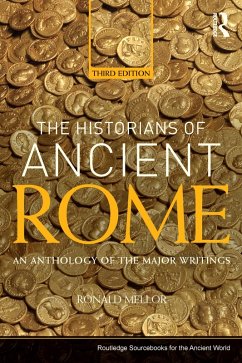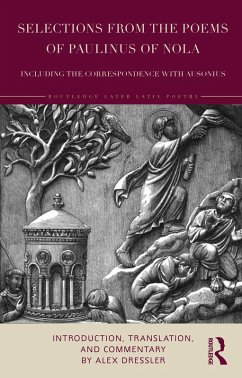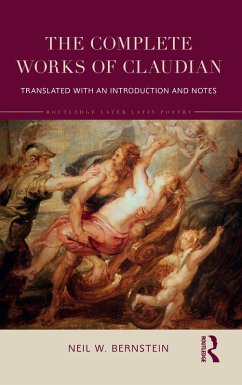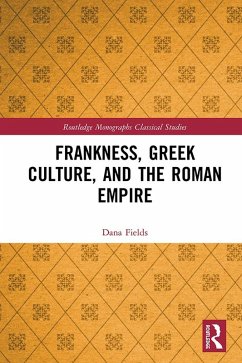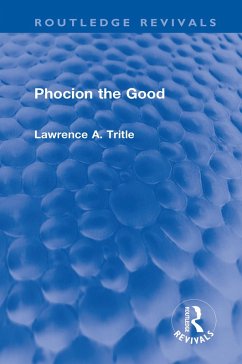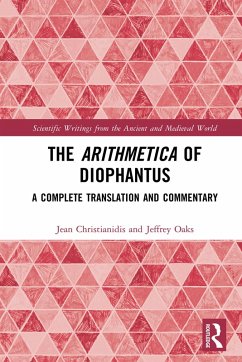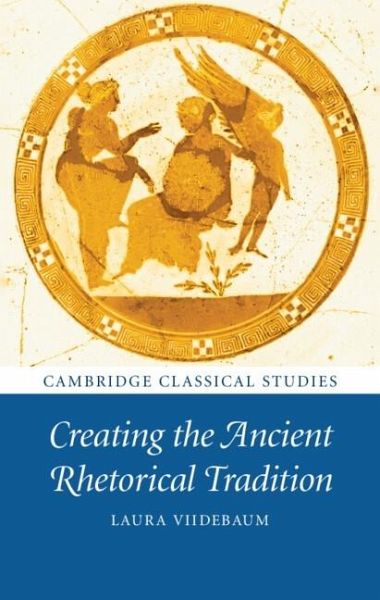
Creating the Ancient Rhetorical Tradition (eBook, PDF)

PAYBACK Punkte
11 °P sammeln!
This book explores the history of rhetorical thought and examines the gradual association of different aspects of rhetorical theory with two outstanding fourth-century BCE writers: Lysias and Isocrates. It highlights the parallel development of the rhetorical tradition that became understood, on the one hand, as a domain of style and persuasive speech, associated with the figure of Lysias, and, on the other, as a kind of philosophical enterprise which makes significant demands on moral and political education in antiquity, epitomized in the work of Isocrates. There are two pivotal moments in w...
This book explores the history of rhetorical thought and examines the gradual association of different aspects of rhetorical theory with two outstanding fourth-century BCE writers: Lysias and Isocrates. It highlights the parallel development of the rhetorical tradition that became understood, on the one hand, as a domain of style and persuasive speech, associated with the figure of Lysias, and, on the other, as a kind of philosophical enterprise which makes significant demands on moral and political education in antiquity, epitomized in the work of Isocrates. There are two pivotal moments in which the two rhetoricians were pitted against each other as representatives of different modes of cultural discourse: Athens in the fourth century BCE, as memorably portrayed in Plato's Phaedrus, and Rome in the first century BCE when Dionysius of Halicarnassus proposes to create from the united Lysianic and Isocratean rhetoric the foundation for the ancient rhetorical tradition. This title is available as Open Access on Cambridge Core.
Dieser Download kann aus rechtlichen Gründen nur mit Rechnungsadresse in A, B, BG, CY, CZ, D, DK, EW, E, FIN, F, GR, HR, H, IRL, I, LT, L, LR, M, NL, PL, P, R, S, SLO, SK ausgeliefert werden.




